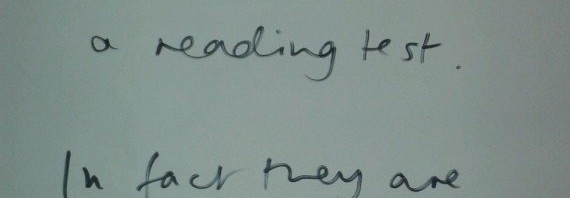On a family visit to a Roman site on the Isle of Wight, I was a bit put off to discover a bit of text I couldn’t read – because it was in Latin. I didn’t see any ancient Romans wandering around, so I had to assume the curators had done it as a kind of academic joke rather than to meet any particular visitors’ reading needs.
Of course, Latin has influenced modern English, just as Anglo-Saxon and other languages have, and we now have a huge choice of words to use. So how do we select those that make the most sense? If you look at the options, it quickly becomes clear that Latin-derived words tend to sound more as if you’re trying to be clever (think: inverted, contaminated, enquired) while Anglo-Saxon words mean the same but sound simpler (compare: upside-down, dirty, asked). The key is that the words mean the same so you may as well use those that the maximum number of visitors are going to understand.
At this week’s TextWorkshop at the Story Museum in Oxford (NB do go and see their exhibition 26 Characters, which is on until November) we had a lovely moment of clarity when delegates came up with the slogans above to guide their text-writing. We love them.
Rebecca.
